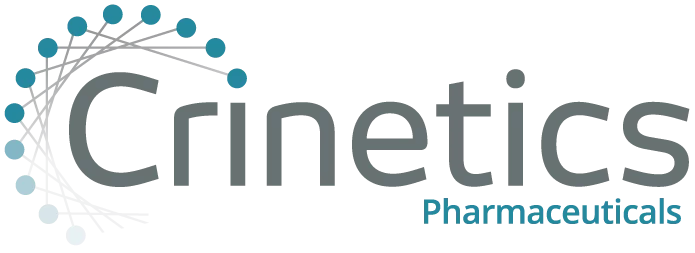Thousands of patients’ lives, and those of their families, are impacted by rare endocrine diseases. We have an opportunity to improve things for these underserved people. Our seasoned team has extensive experience in drug discovery and development in endocrine GPCRs, and we’ve built a highly productive drug discovery organization.
Read below to learn more about the areas we’ve been working on. Then we’d love to hear what you need and what your patients struggle with so we can get to work on that, too.
Thousands of patients’ lives, and those of their families, are impacted by rare endocrine diseases. We have an opportunity to improve things for these underserved people. Our seasoned team has extensive experience in drug discovery and development in endocrine GPCRs, and we’ve built a highly productive drug discovery organization.

Read below to learn more about the areas we’ve been working on. Then we’d love to hear what you need and what your patients struggle with so we can get to work on that, too.
Conditions
Conditions
Acromegaly is a rare, chronic, endocrine disorder caused, in most cases, by a growth hormone-producing pituitary tumor. Symptoms can vary, and may be due to the direct effect of GH and/or IGF-1 on various organs and systems, or can develop from the local effect of the tumor itself.
Approximately 26,000 people in the United States suffer from acromegaly, and an estimated 40% to 60% of patients are candidates for chronic pharmacological intervention.
Acromegaly patients must often endure the disruptive process of getting an injection every month. Our leading drug candidate, paltusotine, is a once-daily oral treatment that would make that annoyance a distant memory, and is the first agent in its class with reported clinical results.
Neuroendocrine tumors originate from the neuroendocrine cells commonly found in the gut, lung, or pancreas. Symptoms vary according to tumor type and location in the body. They may include diarrhea, flushing, and shortness of breath (known as Carcinoid Syndrome). Symptoms may also result from tumor growth and invasiveness. NETs are the second most common GI cancer after colon cancer. 171,000 adults have NETs. Paltusotine, our leading drug candidate, is also being developed for the treatment of NETs.
Carcinoid syndrome is a group of symptoms some patients may present when they have a specific type of cancer called a neuroendocrine tumor, or NET. Not all NETs cause carcinoid syndrome, but it commonly develops if the NET spreads from the small bowel (or other locations) to the liver. In these cases, the hormones the NET secretes cannot be filtered out by the liver as they normally would, so they get into the body’s circulatory system and cause symptoms that may include flushing (a sudden, intense reddening of the skin with a warming and/or burning sensation of the face, head, and upper chest), diarrhea, or shortness of breath.
Cushing’s disease is caused by a benign ACTH-secreting pituitary adenoma, resulting in excessive cortisol secretion by the adrenal glands. Symptoms may include weight gain, fatty deposits, thinning skin that bruises easily, and fatigue. We estimate that approximately 10,000 people in the United States live with Cushing’s Disease.
CAH is a group of genetic disorders affecting the adrenal glands and is caused by genetic mutations. Symptoms vary according to the type of CAH, but can be severe and include dehydration, cardiac arrhythmia, metabolic acidosis, and low blood sugar or sodium levels. In the U.S. and Europe, CAH occurs in 1 in 10,000-15,000 live births.
Clinical Trials
An oral acromegaly treatment that’s 24 hours, one DOSE.
Our investigational drug, paltusotine, is the first nonpeptide, oral, somatostatin agonist being evaluated for the treatment of acromegaly. We seek study participants for this ONCE-A-DAY, ORAL medication. If you have acromegaly patients who may qualify, click below to learn more.
Subscribe
Stay informed on our work to improve the lives of patients living with endocrine diseases.

